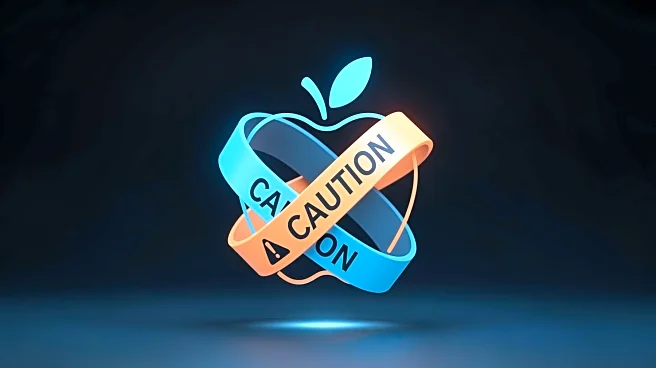What's Happening?
The Supreme Court is currently deliberating on Callais v. Louisiana, a case that could significantly impact the Voting Rights Act of 1965, particularly Section 2, which protects against racialized vote
suppression. The case questions whether Louisiana's creation of a second majority-minority district violates the 14th or 15th Amendments. The NAACP Legal Defense Fund, led by Janai Nelson, is actively defending the Voting Rights Act, emphasizing its importance in maintaining a multiracial democracy. The court's decision could potentially reshape voting rights and precedents established by previous cases, such as Thornburg v. Gingles and Allen v. Milligan.
Why It's Important?
The outcome of this case holds significant implications for U.S. democracy, particularly in terms of racial equality in voting. If the Supreme Court restricts or ends Section 2, it could lead to increased racial discrimination in voting, undermining decades of progress. This decision could affect how voting rights are protected and enforced, impacting minority communities and the broader democratic process. The case also raises concerns about the court's potential overreach and its willingness to overturn established precedents, which could lead to a constitutional crisis.
What's Next?
The Supreme Court's decision will be closely watched by civil rights organizations, lawmakers, and the public. If the court decides to restrict Section 2, it may prompt legislative action to protect voting rights through new laws or amendments. Civil rights groups may increase advocacy efforts to ensure voting rights are preserved. The decision could also influence future cases related to racial discrimination and voting rights, setting a precedent for how such issues are addressed in the judicial system.
Beyond the Headlines
The case highlights deeper issues regarding the balance of power between the judiciary and legislative branches. It questions the role of the Supreme Court in shaping civil rights laws and its adherence to precedent. The potential erosion of voting rights protections could lead to broader societal impacts, affecting voter turnout and representation in government. The case underscores the ongoing struggle for racial equality and the importance of legal frameworks in safeguarding democratic principles.









